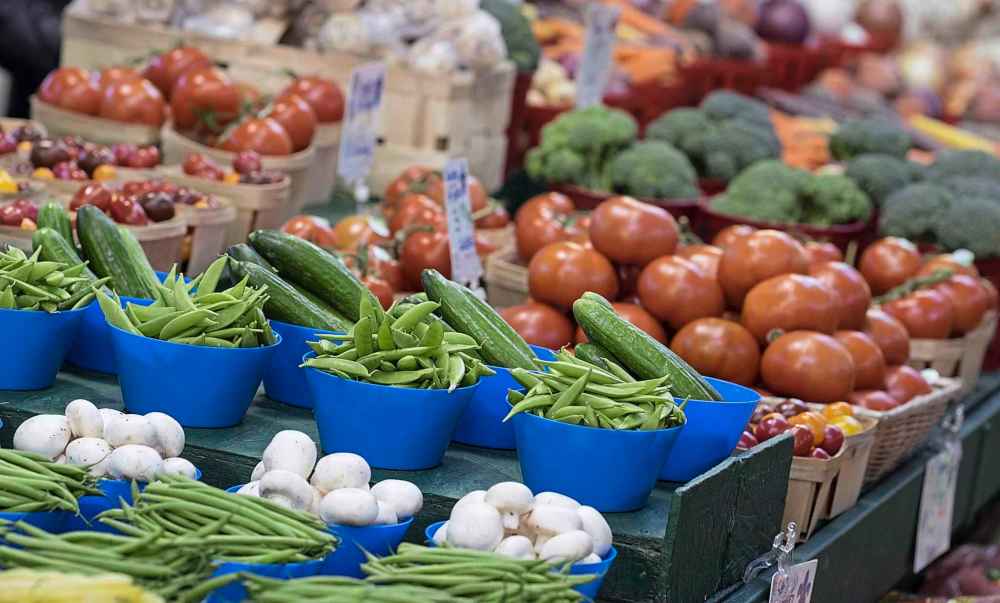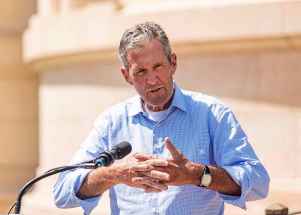Scheer’s fight over food guide flawed
Read this article for free:
or
Already have an account? Log in here »
To continue reading, please subscribe:
Monthly Digital Subscription
$0 for the first 4 weeks*
- Enjoy unlimited reading on winnipegfreepress.com
- Read the E-Edition, our digital replica newspaper
- Access News Break, our award-winning app
- Play interactive puzzles
*No charge for 4 weeks then price increases to the regular rate of $19.00 plus GST every four weeks. Offer available to new and qualified returning subscribers only. Cancel any time.
Monthly Digital Subscription
$4.75/week*
- Enjoy unlimited reading on winnipegfreepress.com
- Read the E-Edition, our digital replica newspaper
- Access News Break, our award-winning app
- Play interactive puzzles
*Billed as $19 plus GST every four weeks. Cancel any time.
To continue reading, please subscribe:
Add Free Press access to your Brandon Sun subscription for only an additional
$1 for the first 4 weeks*
*Your next subscription payment will increase by $1.00 and you will be charged $16.99 plus GST for four weeks. After four weeks, your payment will increase to $23.99 plus GST every four weeks.
Read unlimited articles for free today:
or
Already have an account? Log in here »
Hey there, time traveller!
This article was published 26/07/2019 (2330 days ago), so information in it may no longer be current.
Last week, in front of an audience of dairy farmers in Saskatchewan, Conservative Leader Andrew Scheer reaffirmed his promise to review the updated Canada Food Guide.
“The process was flawed,” Mr. Scheer said. “Complete lack of consultation. Seems to be ideologically driven by people who have a philosophical perspective and a bias against certain types of healthy food products.”

Speaking of ideology, the comment essentially parrots the position of both the cattle and diary industries. Last December, prior to the January rollout of Health Canada’s new Canada Food Guide, CBC quoted Alberta Milk chairman Tom Kootstra as saying Health Canada was prioritizing a plant-based diet for “ideological reasons.”
Surely, Mr. Scheer can’t be surprised that he’s being called out for kowtowing to industry. The new food guide — widely celebrated by nutrition experts for being evidence-based and free of outsized lobbyist influence — doesn’t actually tell Canadians to avoid dairy or animal protein. It does recommend choosing plant-based protein “more often” and making water the drink of choice — two dietitian-backed guidelines.
The Canada Food Guide may seem like small potatoes in terms of election issues, but food — at the confluence of economy and public health policy — is, indeed, a political issue.
Modern society is fundamentally confused about nutrition. That we don’t really know what or how to feed ourselves is not totally our fault, as we navigate a flawed industralized food system that produces a great many products that are food-adjacent at best — pumped full of processed sugar, salt and additives that are designed to be cheap and addictive, encouraging people to eat large portions and more often.
Most of us understand that too many people are eating too many meals that arrive through a drive-thru window bundled in a grease-spotted bag, but the proliferation of hard-to-sustain fad diets and all-or-none “wellness” culture is also causing confusion. So, too, are various viral “studies” — Google “Are eggs bad for you?” and you’ll quickly get the picture.
Somewhere along the way, something as natural as eating– which gives your body the fuel it needs to survive — became a mystery to most consumers.
Somewhere along the way, something as natural as eating — which gives your body the fuel it needs to survive — became a mystery to most consumers.
Diet-obsessed culture taught people to ignore their own intuition and knowledge, sending many into a spiral of restriction and binge-eating. Home cooking has become a challenge in our over-scheduled lives.
In that context, the Canada Food Guide serves as a kind of signpost, encouraging people to slow down, be mindful of their eating habits and choose quality food.

It seems to share the values of writer Michael Pollen, whose seven-word guide to healthy eating — “Eat food, not too much, mostly plants” — has been widely adopted. Shop from the perimeter of the grocery store. Eat real food. Drink water. It’s not so hard in theory. In practice? That’s more difficult.
Focusing on the perceived demotion of meat and dairy in the Canada Food Guide is to focus on the wrong thing. If there’s a deficiency in the Canada Food Guide, it’s that for the two million Canadians living in poverty and food insecurity, following the guide’s advice will always be aspirational rather than practical.
Food security — especially in Canada’s North — and sustainable farming should be the real election issues. So, too, should school nutrition programs and improved access to the kinds of foods the guide recommends. Anything else should be considered low-hanging fruit — or perhaps in the case of Mr. Scheer’s comments, udders.











